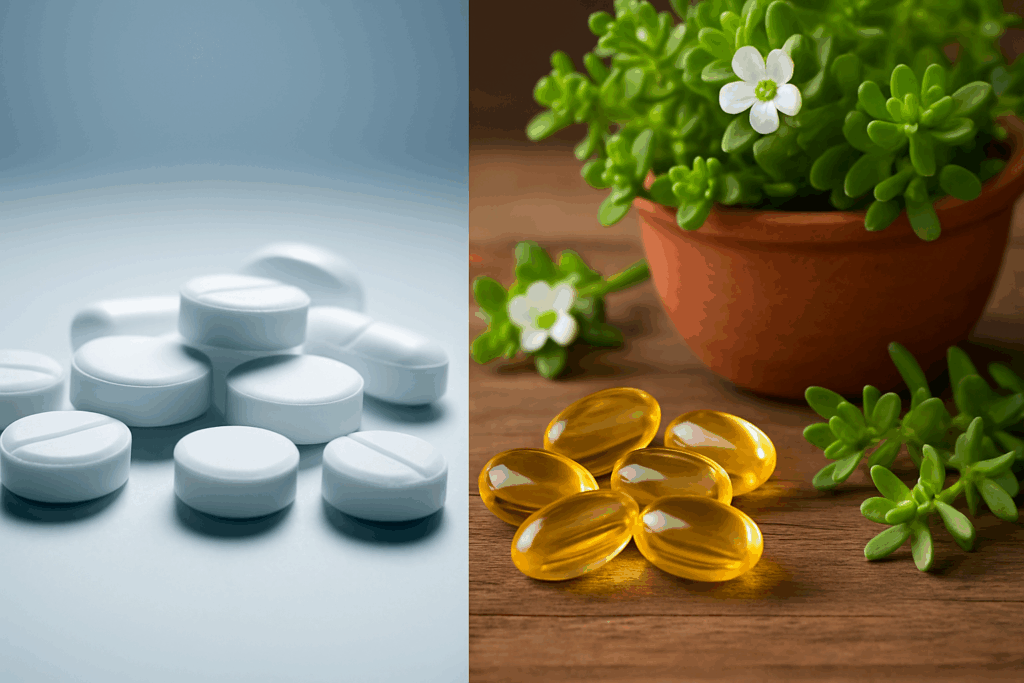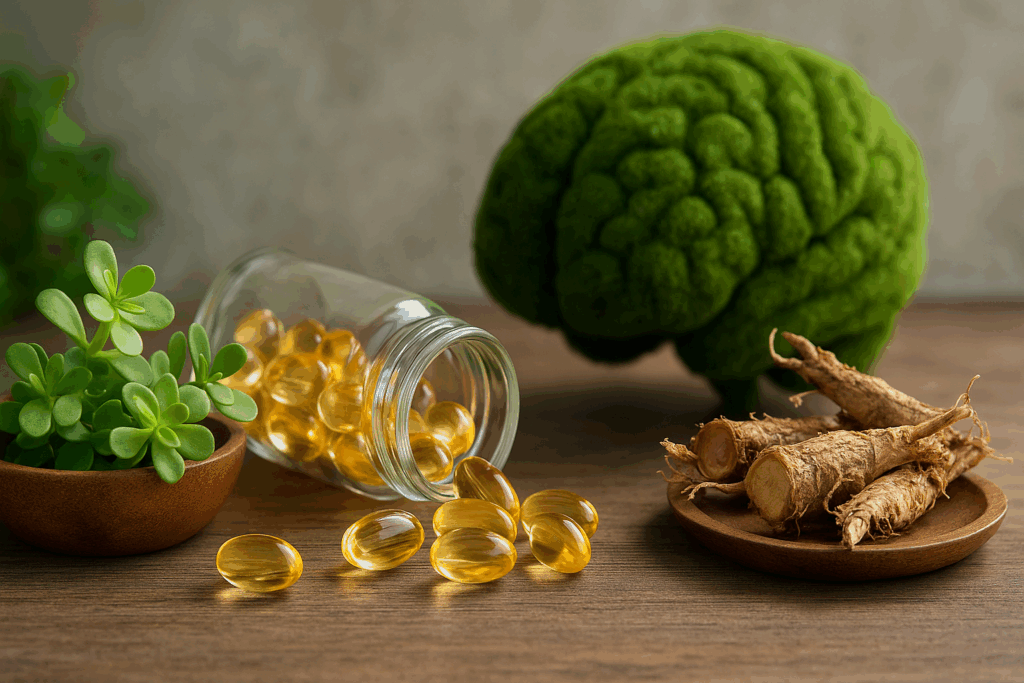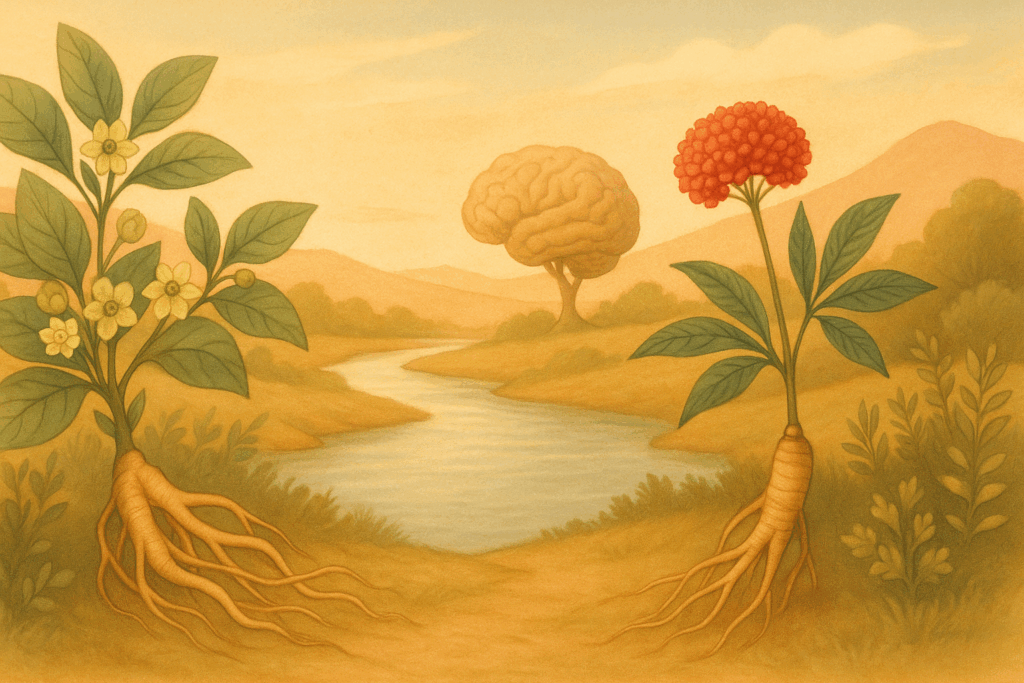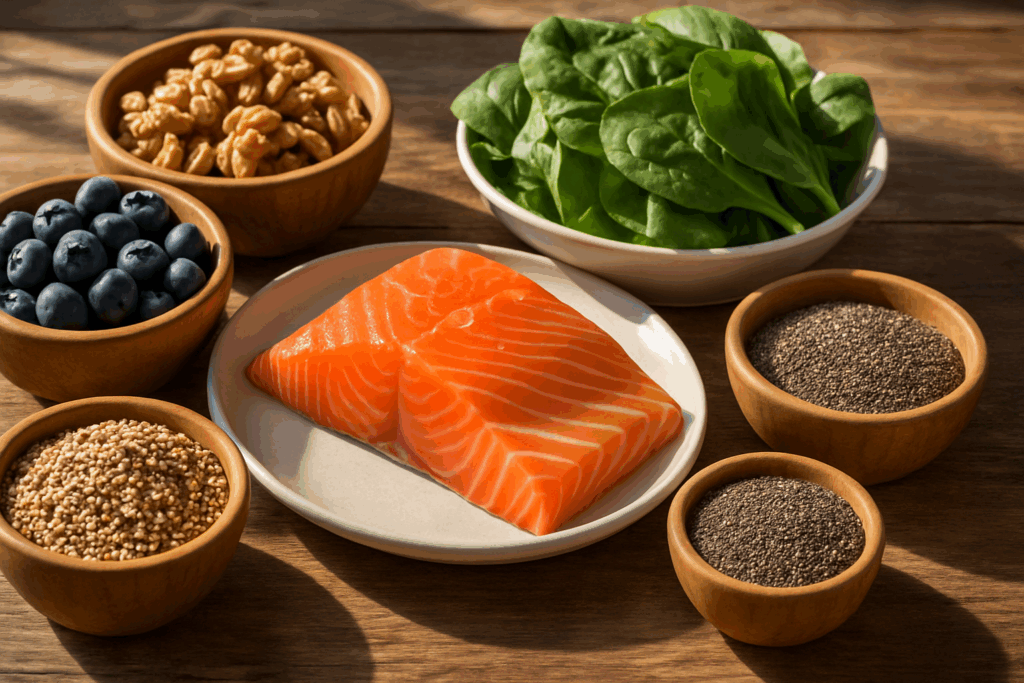Focus and mental clarity are essential for navigating the complexities of daily life, especially for individuals managing attention deficit disorders. When considering options for cognitive support, it is crucial to understand the differences between traditional ADD vs ADHD medication and natural alternatives. Many people are seeking holistic strategies that complement or reduce their reliance on pharmaceuticals, leading to a rising interest in natural ingredients known for their cognitive benefits. In this comprehensive guide, we will explore the role of natural compounds in supporting focus, how they compare to conventional treatments, and what science reveals about their effectiveness.
You may also like: The Vital Ingredient Differences in Vyvamind vs Adderall and NooCube: What Experts Say About Their Natural Benefits

Understanding the Distinction Between ADD vs ADHD Medication and Natural Focus Aids
Before diving into specific natural ingredients, it is important to distinguish between the typical course of ADD vs ADHD medication and the role that natural focus aids might play. ADD, or Attention Deficit Disorder, traditionally describes inattentiveness without hyperactivity, whereas ADHD, Attention Deficit Hyperactivity Disorder, encompasses impulsivity and hyperactivity as core symptoms. Standard medications, such as stimulants like methylphenidate and amphetamines, work by increasing neurotransmitter activity in the brain to improve attention and control impulses. However, these medications are not without side effects, including potential cardiovascular risks, appetite suppression, and sleep disturbances.
Natural focus aids, by contrast, seek to optimize cognitive functioning through gentler mechanisms, such as supporting neurotransmitter balance, reducing inflammation, enhancing blood flow to the brain, and improving cellular energy production. While natural options may not replace ADD vs ADHD meds for every individual, they offer promising adjunctive strategies, especially for those seeking to minimize side effects or for individuals with milder forms of attentional difficulties.
Why Natural Ingredients Matter in Managing Focus and Attention
The search for natural remedies to support mental focus is not a new trend but rather rooted in centuries-old herbal medicine traditions across the world. Ingredients like Ginkgo biloba, Bacopa monnieri, and Rhodiola rosea have long histories of use for cognitive enhancement. What differentiates modern applications is the growing body of scientific research investigating the efficacy of these natural compounds. Increasingly, researchers are exploring how botanical extracts, essential fatty acids, amino acids, and micronutrients impact brain function, particularly concerning executive function, memory retention, and sustained attention.
Furthermore, natural interventions align with a broader trend toward personalized medicine, where treatment approaches are tailored to individual genetic, biochemical, and lifestyle factors. This shift underscores the value of a holistic perspective that considers diet, sleep, exercise, and supplementation in tandem with or in place of conventional ADD vs ADHD medication strategies.

Key Natural Ingredients for Focus: Science-Backed Insights
When evaluating natural support for attention and concentration, it is critical to focus on ingredients that have been scientifically validated. One of the most researched botanicals is Bacopa monnieri, an adaptogenic herb traditionally used in Ayurvedic medicine. Studies suggest that Bacopa enhances cognitive processing speed, memory, and stress resilience by modulating acetylcholine levels and exerting antioxidant effects in the brain.
Another standout is Rhodiola rosea, a hardy adaptogen that helps regulate cortisol levels and enhances mental endurance during periods of stress or fatigue. Clinical trials indicate that Rhodiola can reduce mental fatigue and improve subjective well-being, factors that directly impact focus and productivity.
Omega-3 fatty acids, particularly EPA and DHA, found in fish oil, play a pivotal role in brain health. Research demonstrates that children and adults with attention disorders often have lower plasma levels of these essential fats. Supplementation with omega-3s has been linked to improvements in attention, impulse control, and emotional regulation, making it a critical adjunct to traditional ADD vs ADHD meds.
The Role of Micronutrients in Cognitive Function and Focus
Micronutrients, though required in small amounts, wield immense power over brain health. Vitamins and minerals such as magnesium, zinc, iron, and vitamin B6 are instrumental in neurotransmitter synthesis and regulation. Magnesium, for example, acts as a natural NMDA receptor antagonist, calming neuronal overactivity that could otherwise lead to restlessness and impaired concentration.
Deficiencies in zinc have been correlated with inattentiveness and hyperactivity, particularly in children. Iron plays a crucial role in dopamine production, and insufficient iron levels can exacerbate symptoms of attention disorders. Meanwhile, vitamin B6 is essential for the synthesis of serotonin, dopamine, and GABA, all critical neurotransmitters involved in mood and focus.
Emerging evidence suggests that supplementing with these micronutrients can enhance the effectiveness of ADD vs ADHD medication, providing a more robust and resilient neurochemical foundation for individuals managing attention challenges.

Adaptogens and Brain Health: A Natural Synergy
Adaptogens are a class of herbs and natural substances that help the body resist physical, chemical, and biological stressors. Beyond Rhodiola, adaptogens such as Ashwagandha and Panax ginseng offer compelling benefits for cognitive performance. Ashwagandha, for instance, has been shown to reduce cortisol levels, enhance memory, and improve executive functioning.
Panax ginseng, long revered in traditional Chinese medicine, has demonstrated potential in improving working memory, reducing mental fatigue, and enhancing overall cognitive function. By promoting homeostasis and reducing oxidative stress, adaptogens create a more favorable environment for sustained focus, positioning them as valuable companions alongside or in place of ADD vs ADHD meds.
Botanical Nootropics and Their Potential in Attention Management
Nootropics, or “smart drugs,” encompass both synthetic and natural substances intended to enhance cognitive abilities. Botanical nootropics offer a gentler alternative to pharmaceutical stimulants. Ingredients like Ginkgo biloba enhance cerebral blood flow, potentially improving memory and attention. Lion’s mane mushroom, rich in hericenones and erinacines, promotes nerve growth factor (NGF) synthesis, supporting neurogenesis and cognitive resilience.
Curcumin, the active compound in turmeric, exerts anti-inflammatory and antioxidant effects that protect neural tissue and may enhance attention span over time. Collectively, these botanicals offer multifaceted support for brain health, making them promising candidates for individuals seeking natural alternatives or complements to ADD vs ADHD medication regimens.

How Diet Impacts Focus: Nutritional Foundations for Attention
While individual ingredients provide targeted support, overall dietary patterns exert a profound influence on cognitive health. Diets rich in anti-inflammatory foods—such as leafy greens, berries, nuts, seeds, fatty fish, and whole grains—create an internal environment conducive to sustained attention and executive functioning.
Conversely, diets high in refined sugars, processed foods, and artificial additives have been linked to increased hyperactivity and inattention, particularly in children. A growing body of research suggests that eliminating artificial food colorings and preservatives can reduce symptoms of attention disorders. Thus, nutritional strategies form a foundational pillar in managing focus, whether or not one relies on ADD vs ADHD meds.
Natural Supplements vs Traditional ADD vs ADHD Medication: A Balanced Perspective
Navigating the decision between natural supplements and ADD vs ADHD medication requires a nuanced understanding of individual needs, symptom severity, and lifestyle factors. Traditional medications offer rapid and measurable improvements for many individuals but are not universally effective and may come with unwanted side effects.
Natural supplements, by contrast, often work more gradually and support broader aspects of brain health and systemic wellness. Some individuals may find sufficient support through diet, lifestyle modification, and supplementation alone, while others may benefit from an integrative approach that combines pharmaceutical and natural strategies.
It is essential to consult with a qualified healthcare provider when considering any shift in treatment plan. Personalized guidance ensures that natural interventions are safe, evidence-based, and complementary to any existing medication protocols.
Critical Considerations When Choosing Natural Focus Support
While natural remedies offer many potential benefits, they are not without considerations. Quality control is paramount, as supplements are not regulated with the same rigor as pharmaceuticals. Choosing products that are third-party tested for purity and potency is crucial.
Additionally, dosage matters. Natural ingredients are not necessarily safe at all dosages, and exceeding recommended amounts can lead to adverse effects. Interactions between supplements and ADD vs ADHD meds must also be considered to avoid unintended consequences. Therefore, professional oversight is vital when embarking on a natural supplementation regimen.
FAQ: Enhancing Focus Naturally and Understanding ADD vs ADHD Medication
How Can Natural Ingredients Complement ADD vs ADHD Medication Plans?
Natural ingredients can be an important adjunct to traditional ADD vs ADHD medication, offering support for cognitive function, emotional regulation, and overall mental clarity. For instance, certain herbal extracts like Bacopa monnieri and Rhodiola rosea have been shown to promote attention span and stress resilience, potentially easing the emotional turbulence often experienced by those with attention disorders. While they are not replacements for prescribed treatments, these ingredients may optimize brain health, helping individuals better tolerate and respond to their prescribed add vs adhd meds. It’s critical to work with healthcare providers to ensure that these supplements do not interact with medications and that their use is evidence-based rather than experimental. By viewing natural options as part of a broader, holistic support system, individuals can take a more empowered role in their cognitive well-being.
Are There Natural Alternatives That Show Promise for Mild Attention Symptoms?
Recent research suggests that individuals with milder attention difficulties, who may not require full-scale intervention with ADD vs ADHD medication, could benefit from targeted nutritional support. Ingredients like L-theanine, magnesium glycinate, and omega-3 fatty acids have demonstrated potential in improving focus, calming impulsivity, and enhancing executive function. For some, lifestyle interventions combined with strategic supplementation could delay or even reduce the need for pharmacological treatments like add vs adhd meds, particularly during earlier stages or less severe presentations. However, it’s important to approach these strategies realistically; while they may support cognitive wellness, they are unlikely to fully substitute for clinical interventions in moderate to severe cases. Personalized assessment remains key to determining when natural options are sufficient and when medication becomes necessary.
What Are the Long-Term Lifestyle Benefits of Combining Natural Ingredients With ADD vs ADHD Meds?
Integrating natural ingredients into a regimen that includes ADD vs ADHD medication may offer sustainable lifestyle improvements beyond symptom control. For example, adaptogens like ashwagandha can help balance the body’s stress response, improving sleep quality, reducing irritability, and building resilience to mental fatigue. These quality-of-life benefits can indirectly amplify the effectiveness of add vs adhd meds, making daily challenges more manageable and enhancing personal agency. Over time, individuals often experience greater emotional regulation, better physical health, and improved productivity by weaving natural brain-supporting habits into their routines. As always, it is essential to monitor changes carefully with professional guidance to ensure that holistic strategies are truly complementary rather than contradictory.
How Do Nutritional Deficiencies Impact the Effectiveness of ADD vs ADHD Medication?
Emerging evidence suggests that underlying nutritional deficiencies can interfere with the therapeutic impact of ADD vs ADHD medication. For example, deficiencies in iron, zinc, and vitamin D have been associated with more severe inattentiveness and impulsivity, even among individuals taking add vs adhd meds. Without correcting these imbalances, medication may seem less effective or require higher doses to achieve intended results, potentially increasing side effects. By addressing these deficits through tailored supplementation or dietary improvements, patients may experience more stable and optimized medication outcomes. Regular bloodwork and comprehensive nutrient assessments are highly recommended as part of a proactive, long-term management plan.
Can Mindfulness Practices Enhance the Effectiveness of Natural Support for ADD vs ADHD?
Mindfulness, meditation, and other contemplative practices may significantly enhance the effects of natural ingredients used alongside ADD vs ADHD medication. Studies show that consistent mindfulness training can restructure brain regions associated with attention and executive control, offering a non-pharmacological boost to focus and self-regulation. When combined with supplements like phosphatidylserine or GABA enhancers, mindfulness may help deepen relaxation responses, balance neurotransmitter activity, and support overall emotional stability. While mindfulness cannot replace add vs adhd meds, it may reduce reliance on high-dose pharmacotherapy over time when used in a sustained, intentional manner. Establishing a daily mindfulness habit, even in brief increments, may deliver measurable cognitive and emotional benefits that naturally augment other treatment strategies.
Why Is Personalization Critical When Choosing Between Natural Ingredients and ADD vs ADHD Medication?
There is no one-size-fits-all approach when it comes to managing attention disorders, making personalization absolutely critical. Individuals vary widely in their neurochemistry, lifestyle habits, environmental triggers, and personal goals, all of which influence how they respond to both natural ingredients and ADD vs ADHD medication. Some may find that a high-quality omega-3 supplement noticeably boosts concentration, while others may require more targeted pharmaceutical support with add vs adhd meds. Genetic factors can also play a role, affecting metabolism, nutrient absorption, and medication sensitivity. By working closely with integrative practitioners or neurologists who specialize in attention-related conditions, individuals can develop highly customized plans that respect their unique biology and evolving needs.
How Are Emerging Research Trends Shaping the Future of ADD vs ADHD Meds?
New trends in ADD vs ADHD medication research are increasingly focusing on precision medicine approaches, neurofeedback integration, and alternative drug delivery systems. For instance, researchers are investigating how genetic profiling may one day predict individual responses to add vs adhd meds, leading to more tailored, side-effect-minimizing treatments. Additionally, innovations like wearable EEG devices are enabling real-time brain monitoring to optimize both medication timing and dosage. Meanwhile, extended-release natural compounds and plant-derived nootropics are gaining interest as adjunctive supports that may help fine-tune focus and minimize emotional volatility. As the field evolves, patients will likely benefit from more nuanced, highly individualized interventions that blend pharmaceutical rigor with holistic strategies.
What Role Does Gut Health Play in Modulating Responses to ADD vs ADHD Medication?
Growing evidence suggests that gut microbiota health profoundly influences cognitive function and could impact how individuals respond to ADD vs ADHD medication. The gut-brain axis regulates the production of neurotransmitters like dopamine and serotonin, both of which are critical for attention regulation and mood stability. Disruptions in gut flora, whether from poor diet, antibiotics, or chronic stress, may exacerbate attention symptoms and reduce the effectiveness of add vs adhd meds. Incorporating probiotics, prebiotic fibers, and fermented foods into the diet could enhance medication outcomes by supporting a healthier gut environment. Future therapies may increasingly combine psychotropic medications with microbiome interventions to create more comprehensive, brain-centered treatment plans.
Can Herbal Adaptogens Offer Unique Support Beyond Conventional ADD vs ADHD Medication?
Herbal adaptogens offer a unique and exciting layer of support for those using ADD vs ADHD medication, particularly in managing stress-related attentional issues. Ingredients like Panax ginseng and holy basil have been studied for their ability to enhance cognitive resilience, reduce mental fatigue, and modulate cortisol responses under pressure. These properties may provide indirect benefits to individuals on add vs adhd meds by stabilizing energy levels, preventing emotional crashes, and improving daily adaptability. However, it’s important to recognize that adaptogens can sometimes interact with prescription medications, requiring professional oversight. As scientific interest in adaptogens continues to grow, they may become more commonly recommended as part of a multi-modal attention management toolkit.
What Are the Ethical Considerations Around the Expanding Use of ADD vs ADHD Meds?
The expanding societal use of ADD vs ADHD medication raises important ethical questions that merit careful consideration. In academic and workplace settings, individuals without clinical diagnoses sometimes seek out add vs adhd meds for cognitive enhancement, creating dilemmas around fairness, accessibility, and medical ethics. Moreover, the growing emphasis on pharmaceutical solutions risks overshadowing equally important lifestyle factors such as sleep hygiene, nutrition, and stress management. Medical providers and policymakers must grapple with how to ensure that medication use remains evidence-based and that individuals are educated about all available options, including natural strategies. Public dialogue around these issues can help cultivate a more holistic, responsible approach to attention management that balances innovation with integrity.
Conclusion: Embracing a Holistic Path to Cognitive Health
The quest for enhanced focus and cognitive clarity is a multifaceted journey. By understanding the roles of both natural ingredients and traditional ADD vs ADHD medication, individuals can make informed decisions that align with their unique needs and goals. The growing body of research supporting natural interventions underscores the importance of an integrative approach—one that values both scientific innovation and time-honored traditions of natural healing.
Incorporating nutrient-dense foods, targeted supplementation, adaptogens, and lifestyle optimization can offer powerful, sustainable support for attention and mental performance. Whether used in conjunction with traditional medication or as part of a holistic wellness plan, natural ingredients represent a promising frontier in the pursuit of cognitive excellence. As always, working with a knowledgeable healthcare provider ensures that every step taken is safe, evidence-based, and personalized to achieve the best possible outcomes for focus and overall well-being.
Further Reading:
ADD vs. ADHD: Differences In Symptoms, Causes And Treatments


